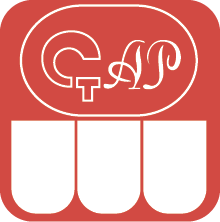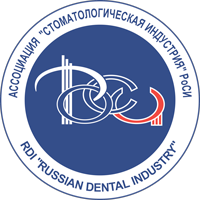DOI:
10.37988/1811-153X_2022_1_54Cytological features of peripheral blood leukocytes in patients with facial phlegmon
Downloads
Abstract
Leukocytes involved in the development of the facial phlegmon inflammatory process are influenced by the microflora and its metabolites, as well as by the decaying tissues of the patient. Relatively little attention is paid to the cytological features of peripheral blood leukocytes and exudate in facial phlegmon. The aim of the research was to study some of the cytological features of neutrophilic leukocytes and monocytes of peripheral blood and exudate in patients with facial phlegmon.Materials and methods.
Evaluation of the content of certain types of leukocytes and their cytological features was carried out on smears obtained from samples of peripheral blood from 18 patients with a diagnosis of facial phlegmon and 29 healthy donors. Exudate samples were taken from patients at the stage of surgical treatment. The smears were fixed with May—Grünwald solution and stained according to the Romanovsky—Giemsa method.
Results.
It was shown that under facial phlegmon an increase in the number of leukocytes with a shift of the formula to the left was observed. At the same time, the segmentation of the nucleus of blood neutrophils increases, which may be necessary to facilitate their migration to the inflammation focus. Vacuolization of the cytoplasm is characteristic of blood monocytes. The cellular composition of the exudate in facial phlegmon is represented mainly by neutrophils (74.6±6.6%) and monocytes. Vacuolization of exudate monocytes is significantly more pronounced than those in the blood. Thus, the number of monocytes with vacuoles was 3 times more, and with inclusions — 13 times more than in the same patients in the blood. The revealed cytological changes indicate that two factors are likely to act in the pathogenesis of facial phlegmon: an increase in the microbial load and tissue decay products.
Conclusion.
Thus, the revealed cytological changes in leukocytes in facial phlegmon indicate, on the one hand, their activation, and on the other, a greater severity of cell destruction.
Key words:
leukocytes, facial phlegmon, neutrophils, monocytes, cytological featuresFor Citation
[1]
Boev I.A. Cytological features of peripheral blood leukocytes in patients with facial phlegmon. Clinical Dentistry (Russia). 2022; 25 (1): 54—57. DOI: 10.37988/1811-153X_2022_1_54
References
- Boev I.A., Shtraube G.I., Antakov G.I., Godovalov A.P. Some epidemiological aspects of the face flegmons morbidity. The Dental Institute. 2017; 4 (77): 24—25 (In Russ.). eLIBRARY ID: 32302004
- Boev I.A., Godovalov A.P., Shtraube G.I., Antakov G.I. Characteristic features of maxillofacial phlegmon morbidity with assessment of efficiency of detoxication therapy. Perm Medical Journal. 2019; 2: 29—35 (In Russ.). eLIBRARY ID: 37629687
- Hajdamowicz N.H., Hull R.C., Foster S.J., Condliffe A.M. The impact of hypoxia on the host-pathogen interaction between neutrophils and Staphylococcus aureus. Int J Mol Sci. 2019; 20 (22): E5561. PMID: 31703398
- Rath E., Skrede S., Mylvaganam H., Bruun T. Aetiology and clinical features of facial cellulitis: a prospective study. Infect Dis (Lond). 2018; 50 (1): 27—34. PMID: 28768452
- Italiani P., Boraschi D. From monocytes to M1/M2 macrophages: Phenotypical vs. functional differentiation. Front Immunol. 2014; 5: 514. PMID: 25368618
- de Jong N.W.M., van Kessel K.P.M., van Strijp J.A.G. Immune evasion by Staphylococcus aureus. Microbiol Spectr. 2019; 7 (2). PMID: 30927347
- Lewis M.L., Surewaard B.G.J. Neutrophil evasion strategies by Streptococcus pneumoniae and Staphylococcus aureus. Cell Tissue Res. 2018; 371 (3): 489—503. PMID: 29204747
- Boev I.A., Straube G.I., Antakov G.I., Godovalov A.P. Endogenous intoxication in patients with face phlegmons. Clinical Dentistry (Russia). 2018; 1 (85): 54—57 (In Russ.). eLIBRARY ID: 32759413
- Bortolotti P., Faure E., Kipnis E. Inflammasomes in tissue damages and immune disorders after trauma. Front Immunol. 2018; 9: 1900. PMID: 30166988
- Afanaseva A.N., Odintsova I.N., Udut V.V. Endogenous intoxication and systemic inflammatory response syndromes: similarity and differences. Russian journal of Anaesthesiology and Reanimatology. 2007; 4: 67—71 (In Russ.). eLIBRARY ID: 21292709
- Kelly M., Hwang J.M., Kubes P. Modulating leukocyte recruitment in inflammation. J Allergy Clin Immunol. 2007; 120 (1): 3—10. PMID: 17559914
- Kokulu K., Günaydın Y.K., Akıllı N.B., Köylü R., Sert E.T., Köylü Ö., Cander B. Relationship between the neutrophil-to-lymphocyte ratio in acute pancreatitis and the severity and systemic complications of the disease. Turk J Gastroenterol. 2018; 29 (6): 684—691. PMID: 30381275
- Gulati G., Song J., Florea A.D., Gong J. Purpose and criteria for blood smear scan, blood smear examination, and blood smear review. Ann Lab Med. 2013; 33 (1): 1—7. PMID: 23301216
- Chabot-Richards D.S., George T.I. White blood cell counts: reference methodology. Clin Lab Med. 2015; 35 (1): 11—24. PMID: 25676369
- Pierre R.V. Peripheral blood film review. The demise of the eyecount leukocyte differential. Clin Lab Med. 2002; 22 (1): 279—97. PMID: 11933579
- Rocher A.E., Guerra F., Rofrano J., Angeleri A., Canessa O.E., Mendeluk G.R., Palaoro L.A. Sensitivity and specificity of cytodiagnosis of body fluids in a laboratory of urgencies. Biotech Histochem. 2011; 86 (5): 326—32. PMID: 20961211
- Honda T., Uehara T., Matsumoto G., Arai S., Sugano M. Neutrophil left shift and white blood cell count as markers of bacterial infection. Clin Chim Acta. 2016; 457: 46—53. PMID: 27034055
- Holub M., Klucková Z., Helcl M., Príhodov J., Rokyta R., Beran O. Lymphocyte subset numbers depend on the bacterial origin of sepsis. Clin Microbiol Infect. 2003; 9 (3): 202—11. PMID: 12667252
- Ansaldo E., Farley T.K., Belkaid Y. Control of Immunity by the Microbiota. Annu Rev Immunol. 2021; 39: 449—479. PMID: 33902310
- Barkhina T.G., Gushchin M.Y., Alekseev Y.V., Ivanov A.V., Davydov E.V., Yudina E.B. Ultrastructural analysis of different populations of blood cells during allergic diseases and effects of light-oxygen and photodynamic effects. Journal of New Medical Technologies, EEdition. 2018; 4: 218—224 (In Russ.). eLIBRARY ID: 35552524
- Maiuolo J., Gliozzi M., Musolino V., Carresi C., Nucera S., Scicchitano M., Scarano F., Bosco F., Oppedisano F., Macrì R., Mollace V. Environmental and nutritional «stressors» and oligodendrocyte dysfunction: Role of mitochondrial and endoplasmatic reticulum impairment. Biomedicines. 2020; 8 (12): E553. PMID: 33265917
- Shubin A.V., Demidyuk I.V., Komissarov A.A., Rafieva L.M., Kostrov S.V. Cytoplasmic vacuolization in cell death and survival. Oncotarget. 2016; 7 (34): 55863—55889. PMID: 27331412
- Aki T., Nara A., Uemura K. Cytoplasmic vacuolization during exposure to drugs and other substances. Cell Biol Toxicol. 2012; 28 (3): 125—31. PMID: 22431173
- Kashutin S.L., Vilova K.G., Shagrov L.L., Sherstennikova A.K., Neklyudova V.S., Tedder E.I., Utyugova V.N. Morphofunctional characteristics of monocytes migration into the skin. Pathological Physiology and Experimental Therapy. 2018; 4: 130—135 (In Russ.). eLIBRARY ID: 36575952
- Gossett K.A., MacWilliams P.S., Cleghorn B. Sequential morphological and quantitative changes in blood and bone marrow neutrophils in dogs with acute inflammation. Can J Comp Med. 1985; 49 (3): 291—7. PMID: 4041973
- Lee W.L., Harrison R.E., Grinstein S. Phagocytosis by neutrophils. Microbes Infect. 2003; 5 (14): 1299—306. PMID: 14613773
Downloads
Received
November 26, 2021
Accepted
February 28, 2022
Published on
March 1, 2022









